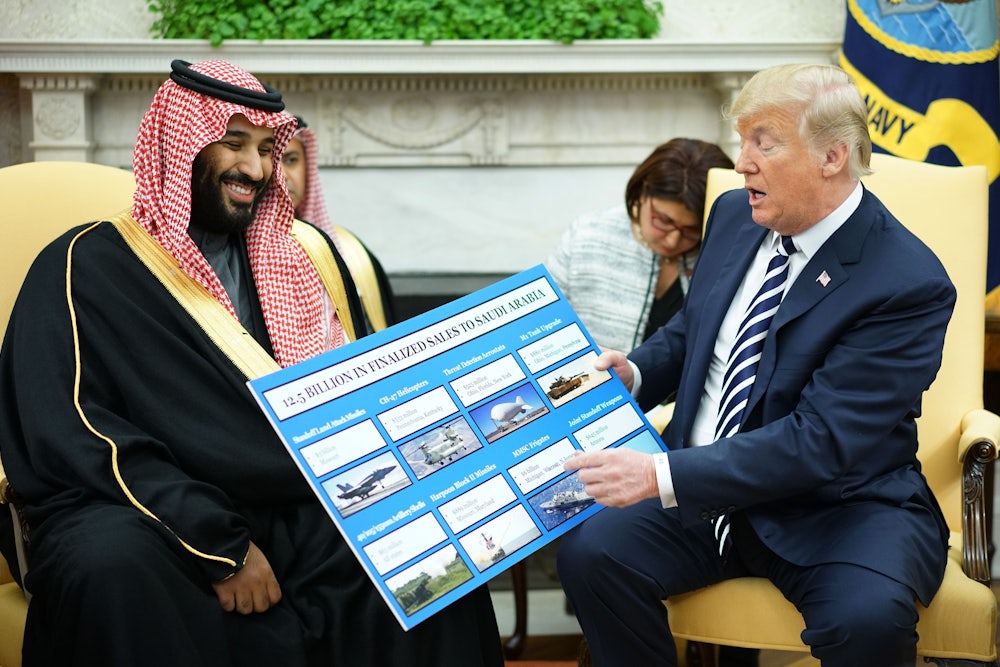Media outlets, major companies, and global leaders are condemning Saudi Arabia for its apparent role in the death of U.S.-based journalist Jamal Khashoggi, who vanished after entering the country’s embassy in Turkey. The New York Times, The Economist, The Washington Post, Uber, and Viacom have pulled out of the country’s Future Investment Initiative in Riyadh. Tom Friedman and other centrist pundits who had previously cheered the country’s crown prince, Mohammed Bin Salman, as a bold reformer, are recoiling. K Street lobbyists, happy to cash checks from the Gulf State for decades in spite of its abominable human rights record, are now getting cold feet. And a bipartisan group of 22 senators are pushing to block a $110 billion arms deal with Saudi Arabia that was announced last year.
All of this has the feeling of a tipping point. Saudi Arabia has jailed and murdered dissidents, women’s rights activists, homosexuals, Shia muslims, and others for decades. It has spent the last three years indiscriminately bombing Yemen despite international criticism, resulting in thousands of civilian deaths; its blockade of the country has also led to a severe famine. Bin Salman, despite his cultivation of pundits and politicians, has led a purge of rivals under the guise of corruption reform. But it was the murder of Khashoggi that has finally created a long-deserved backlash.
If Khashoggi is the thing that gets pundits to turn on Saudi Arabia that's fine, but part of me still wants to know where all these guys were when the Saudis were pulverizing Yemen and bulldozing Shia towns in the Eastern Province. https://t.co/YGNFMM9vCn
— derek davison (@dwdavison9318) October 11, 2018
Whether or not this backlash will last is another matter. President Donald Trump can do much to rein in Bin Salman, but has chosen not to, citing the $110 billion arms deal and the fact that Khashoggi was not an American citizen. Trump’s own financial ties to Saudi Arabia, it is worth noting, are murky. If he ordered the murder of Khoshaggi, Bin Salman may have assumed that, given the praise he has received, his unearned image as a moderate would cover up his recklessness. But he also surely bet that Trump’s fecklessness and the United States’ strategic alliance with Saudi Arabia, an oil producer and enemy of Iran, would protect him. That potential calculation may still hold true.
